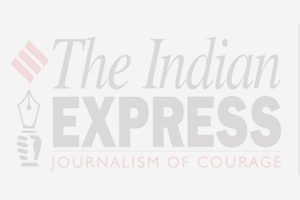

Zee-Jindal case raises many questions; wait for word from the court
It’s unnerving to find oneself on the same side as Subramanian Swamy and Arnab Goswami, watching Zee and Jindal Steel and Power Ltd play a weird variation of Spy vs Spy. Swamy wants to slash, burn and nuke his way through the miasma of absurd claims and innuendo surrounding the case. In particular, he suggests that the arrest of two Zee journalists was improper. Goswami’s project is pitched lower, though, as usual, his voice is high: can a charge of extortion be countered with an appeal for the protection of media freedoms, he asks.
The media is willing to contemplate its navel and bewails the lint therein. It’s had some practice. Rajdeep Sardesai speaks of a crisis of credibility and asks, “Is it easier to believe corporates than the media today?” It’s been that way ever since Radiagate, when journalists were found to be playing along with — or “stringing along” — a publicist and lobbyist. Though no evidence of material benefit was produced, the charge of professional impropriety stuck. Meanwhile, paid news has been revealed to be a pervasive phenomenon — 190 cases have been detected in the Himachal Pradesh election, for instance — which has cast a shadow over the credibility of all news.
The Jindal sting is a complicated story whose details matter. Talking about a crisis of credibility in media suggests an expansion of ambit, but it is actually reductive because distance blurs detail. Here, while guilt or its absence remains to be determined by the courts, all the parties except the law have managed to compromise themselves. Just a little, in some absurd way or another.
JSPL has released only 15 minutes of footage from three rounds of negotiation and is clearly reluctant to reveal the rest, suggesting that it reveals something apart from extortion. Zee News claims to have been running a sting but, as Broadcast Editors’ Association member Dibang said on Times Now, had no footage to prove it. Zee CEO Alok Agrawal riposted by making an incomprehensible distinction between a “sting operation”, where evidence must be collected and “sting journalism”, which apparently uses “another via media”. Go figure. Go mad figuring.
And finally, the prosecution and the police have compromised themselves by changing the charges while arresting two Zee journalists. One charge is non-bailable while the charges applied earlier were not, suggesting that the police are putting on the screws on behalf of government. On the other hand, the prosecution will always seek to frame charges that they can prove and for technical reasons, the earlier ones were a little uncertain.
However, this has allowed Zee to launch a loudly self-righteous multimedia campaign on TV, in print (DNA) and on its website, with a logo showing the word ‘media’ in chains, and the company leadership likening the proceedings against them to attacks on press freedoms during the Emergency. Since they have no footage of the ‘sting’, they were looping an old tape in which Naveen Jindal pushed Zee journalists about — after they hounded him.
The courts will take their time mulling the evidence but trial by media is fast moving and, as N Ram said, the two journalists arrested “will have a hard time explaining what they were doing in those meetings.” So will the JSPL representatives, who cannot prove that they weren’t trying to do an ad deal which went sour.
Until the courts pronounce a verdict, however, two limited questions can be pursued. Was arrest proper under these circumstances? On the other hand, is it proper for media to protest of an Emergency-like attack on its freedoms when it is charged with attempted extortion?
pratik.kanjilal@expressindia.com
No comments:
Post a Comment